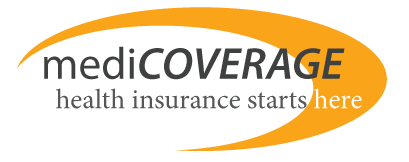HSA Bank Account: Saving Health Insurance Dollars
An HSA Bank Account can Save you Money
An HSA bank account in combination with a high deductible health plan (HDHP) is one of the savviest new forms of health insurance. Congress gave the American public an opportunity to save money while still getting excellent health insurance when they passed the bill allowing for the Health Savings Account (HSA).
Traditional health insurance costs thousands of dollars in premiums every year. Many healthy insured don’t receive much benefit from those plans, or not enough to cover the cost of high premiums. HSA-qualified HDHPs, however, have high deductibles but relatively lower premiums. The trade-off they do require higher out-of-pocket expenditures up front. Most people fear that they won’t have the funds available if they should have an accident or become ill and require expensive medical treatments. If you were to purchase an Anthem Lumenos HSA Connecticut this is an overview and explanation of costs and coverage.
The HSA/HDHP combo, however eliminates the subscriber’s exposure to such catastrophic risk because once the individual or family has met their deductible, the insurance company kicks in its payments. So for run-of-the mill doctor’s appointments and prescription medications, you’ll generally foot the bill, but if things go really wrong, the insurance company takes on that financial risk. The great part is that if you and your family have a healthy year and don’t use the money you’ve socked away in your HSA bank account, it just rolls over to the next year, tax-free. And it can keep growing and growing, year after healthy year.
Setting up an HSA Bank Account
Once you enroll in an HSA-qualifying HDHP health insurance plan, you can then set up your HSA. You can do this at major banks like Bank of American and Wells Fargo, or use the bank associated with your health insurance plan. Once the plan is set up, you usually receive a debit card and checks just as you would for any normal checking account. You can use the money in the account to pay for your medical expenses that go toward satisfying your health insurance deductible.
Additionally you can also draw upon the account for more types of expenses than your high deductible plan allows. If you need eyeglasses or dental work, services health insurance policies don’t usually cover; you can use the funds from the HSA and still maintain the tax-free status for those funds. Of course, these cost do not apply toward the deductible on your health plan.
When selecting an HSA savings account, you should make sure to check their fees and interest rate. We have found that currently the interest rates on most HSAs are low but you should be able to select a plan that will offset any banking fees.
HSA Bank Account Restrictions
HSA savings accounts do have some restrictions. For instance, in the year 2010, individuals under the age of 55 can contribute a maximum of $3,050 to the an individual HSA. Families can contribute up to $6,150 to a family HSA. However, if you’re 55 or older, you can to add an additional $1,000 to the account every year as a catch-up provision of the plan. Even if you start the plan later in the tax year, you can still contribute the full amount as long as your coverage began the first day of the last month of your taxable year. If you’re like most people and use the calendar tax year, that date would be December 1.
HSA Out of Pocket Maximums and Minimum Deductibles
There are also some rules that apply to the HDHPs that must be enrolled in alongside the HSA bank accounts. Those are the out-of-pocket maximums and the minimum deductible. The maximum out-of-pocket expense, including deductibles, that participants can be required to pay is $5,950 for individual coverage, and $11,900 for family coverage.
The minimum deductible of the high-deductible health insurance plan to which HSAs must be linked is $1,200 for single coverage and $2,400 for family coverage.
Remember, if you don’t use the money in the account, it rolls over to the following year for later use. It’s yours to keep forever. Even if you pass away, your heirs receive the funds. If you go on Medicare, you no longer can contribute to the HSA. However, you still can use the remaining funds for medical purposes. The premium on long-term care insurance is one of the options allowed. Eye glasses, alternative medical procedures and even payments for vitamins all qualify as medical expenses. Have a look at our HSA Expenses page to get an idea of all the things you can pay for with an HSA bank account.

Comments and Questions
Click to leave a Comment